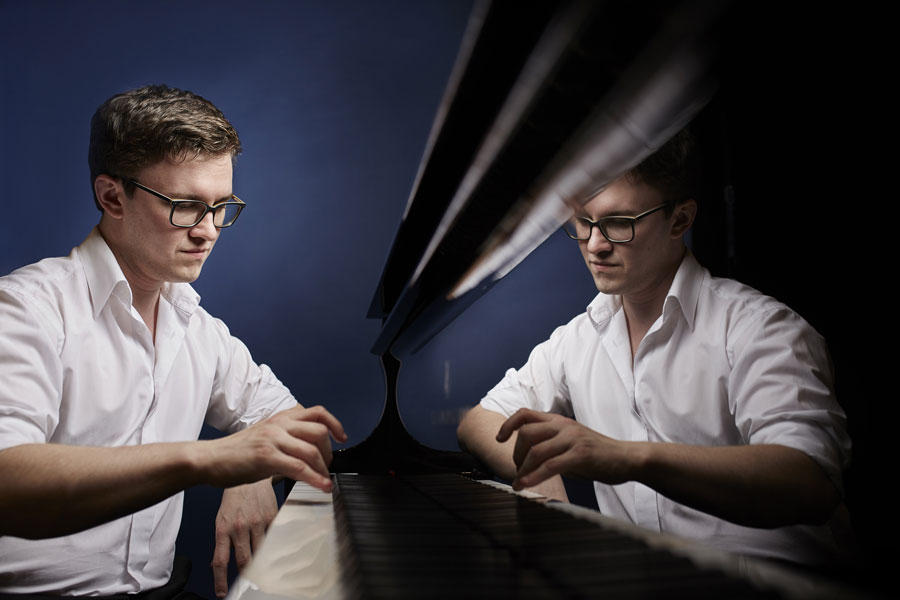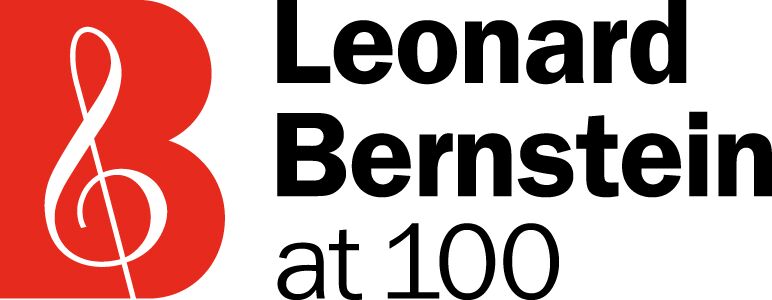Born in Japan, Eiji Oue began his musical studies with piano lessons at the age of 4. At 15, Oue entered the Toho Gakuen School of Music as a performance major, beginning his conducting studies that same year with Hideo Saito, the teacher of Seiji Ozawa. In 1978 he was invited by Ozawa to spend the summer studying at the Tanglewood Music Center where he met Leonard Bernstein, who became his mentor and colleague. Eiji Oue is Conductor Laureate of the Osaka Philharmonic Orchestra, having served as Music Director from 2003-2011, and Conductor Laureate of the NDR Radio Philharmonic Orchestra Hannover, following eleven years as their Principal Conductor (1998-2009). He has also held the positions of Music Director of both the Minnesota Orchestra (1995-2002) and the Orquesta Simfònica de Barcelona i Nacional de Catalunya (Barcelona Symphony Orchestra) (2006-2010).
German pianist, Frank Dupree was born in 1991, in Rastatt. He is the student of Sontraud Speidel with whom he is currently completing a Masters degree of Music at Karlsruhe University. In 2012, Dupree was awarded First prize at the International Hans-von-Bülow Competition in Meiningen. During the summer of 2013, he won the Studienstiftung des Deutschen Volkes scholarship and in 2014 he received the Deutschen Stiftung Musikleben scholarship. In recent years Dupree has gained attention as the laureate prize winner of the 2014 Deutscher Musikwettbewerb, in Bonn. His debut album was released in the summer of 2015 on the GENUIN classics label, featuring works by Beethoven, Berg, Berio, and the world premiere recording of Eötvös‘ Erdenklavier – Himmelklavier. Additionally, Dupree, who is an active chamber musician, has been invited to the Chamber Music Academy of the Heidelberg Spring Festival and the Verbier Festival Academy.
Leonard Bernstein composed Divertimento for the Boston Symphony Orchestra's centenary in 1980, dedicating the piece, "With affection to the Boston Symphony Orchestra in celebration of its First Centenary." The piece enjoyed its premiere under Seiji Ozawa on September 15, 1980. Divertimento was composed with great affection for the organization and the city of Boston. Bernstein was born in Lawrence, Massachusetts outside the city and grew up in the Boston area, he was a graduate of Harvard University and The Boston Latin School. He had been a student at the Boston Symphony's summer institute at Tanglewood in 1940 and had also served as conducting assistant to Serge Koussevitsky at the Berkshire Music Center. Bernstein’s final public appearance was a performance of the Boston Symphony which he led at Tanglewood in August 1990.
The piece is a series of dances based on the notes B for Boston and C for Centennial. The work is light-hearted, high-spirited, and pert, full of allusions and jests with orchestra members. Throughout, Divertimento contains allusions to the repertoire that influenced Bernstein as a young composer and the final march honours the conductors and orchestra members who passed during his tenure. Additionally, Bernstein’s highlighting of the various sections is in many cases based on Bernstein’s personal relationship with the musicians. When he wrote a solo for a particular instrument he wrote for a musician whom he knew personally and whose personal traits he often had in mind.
George Gershwin composed the Concerto in F for Piano and Orchestra between July 22 and November 10, 1925. The composer performed the solo at the premiere on December 3rd the same year, in New York City. The piece was commissioned by the conductor Walter Damrosch. Gershwin’s biographer, Isaac Goldberg, claimed that after accepting the commission, Gershwin went to buy a book on musical form, to see how a concerto was constructed. Whether there is truth to the tale or not, the story does point to the fact that Gershwin was embarking on an unfamiliar compositional challenge. Ferde Grofé had orchestrated Rhapsody in Blue, and the composer was apprehensive about orchestrating the piece himself. While he intended to use Charleston rhythms and a blues trumpet, Gershwin also wanted to create a piece of serious music, one he said, would represent “the young, enthusiastic spirit of American life.”
Gershwin's notoriety stems from the natural way he diminished the polarity between commercial and classical music. The composer’s most significant compositions are written using traditional European forms. An American in Paris is a tone poem for orchestra and Porgy and Bess is an opera. The most classical of Gershwin's works, however, is the Concerto. He constructed the piece in the form established by Mozart and Beethoven with the first movement in sonata form, a lyrical second movement and a finale in rondo. The Concerto in F is truly a high point in the merger of European approaches with the freedom, rhythm, and swagger of jazz.
Claude Debussy completed, L'après-midi d'un faune (Prelude to The Afternoon of a Faun) in 1894, and the premiere took place at the Société Nationale de Musique in Paris that December, with Gustave Doret conducting. A poem by his friend Stéphane Mallarmé, of the same title, which was inspired by a François Boucher painting at the National Gallery in London, stirred Debussy to write what was meant to be a three part orchestral work with the titles Prélude, Interlude and Paraphrase finale. The flute’s theme, which is the central theme of the work, represents the faun, however Debussy made clear that Mallarmé's 1876 poem provided only a context "The music of this prelude is a very free illustration of the beautiful poem of Stéphane Mallarmé. It makes no pretensions whatever to being a synthesis of the poem. It projects, rather, a changing background for the dreams and desires of the Faun in the heat of that summer afternoon, as, weary from pursuing the frightened Nymphs and Naiads, he falls into a wine-drugged sleep, free at last to enjoy every bounty that he had craved of Nature."
The audience at the premiere, impressed by the composition, which was revolutionary in sound and form insisted the work be repeated immediately. This served as the introduction to Debussy’s new modus of harmony, rhythm, melody, and orchestration, in which all the elements perpetually shift without resolution. Mallarmé’s poem about “a faun dreaming of the conquest of nymphs” transitions between dream and reality, lending Debussy the perfect setting to explore his new language. Thus, Debussy established an innovative style both in the way the orchestra is treated and in the approach to harmony and musical structure. Perhaps Pierre Boulez described the significance of the work best explaining, "the flute of the Faun breathes a new air into musical art: Here it is not so much the art of development that is upset, but the concept of form itself, freed from all the impersonal constraint of a preordained scheme, lending wings to a lithe and mobile expressiveness… This score has a potential of youthfulness that defies exhaustion or decrepitude; and just as modern poetry is firmly rooted in certain poems by Baudelaire, one is justified in saying that modern music awakes with the premiere of L'après-midi d'un faune."
Maurice Ravel began composing Daphnis and Chloe, for Sergei Diaghilev and the Ballets Russes, in 1909 and completed the score in 1912. The ballet was first presented on June 8, 1912, in Paris. It is the largest orchestral work Ravel composed. “My intention in writing [Daphnis and Chloe],” Ravel revealed, “was to compose a vast musical fresco in which I was less concerned with archaism than with reproducing faithfully the Greece of my dreams, which is very similar to that imagined by French artists at the end of the eighteenth century.” Ravel called his work a “choreographic symphony in three parts.” The story of the ballet was adapted from the fifth-century Greek author Longus. Daphnis and Chloe, who were abandoned as children and raised by shepherds, had fallen in love. In the first part Daphnis earns Chloe’s kiss, but she is then abducted by pirates! Pan and his warriors must rescue Chloe in the second part and in the third the lovers are reunited. Ravel arranged two sets of symphonic sections of the ballet for the concert hall and the second suite premiered for the first time on April 30, 1914. “The work is constructed symphonically out of a small number of themes,” Ravel said, “the development of which ensures the work’s homogeneity.” Daphnis and Chloe did not succeed as a ballet, due to the bickering of the Artistic leadership. However, the lush music, most notably in the second suite, made an immediate impression on listeners and it has since become a symphonic staple.
Alixandra Porembski, English Language Annotator


